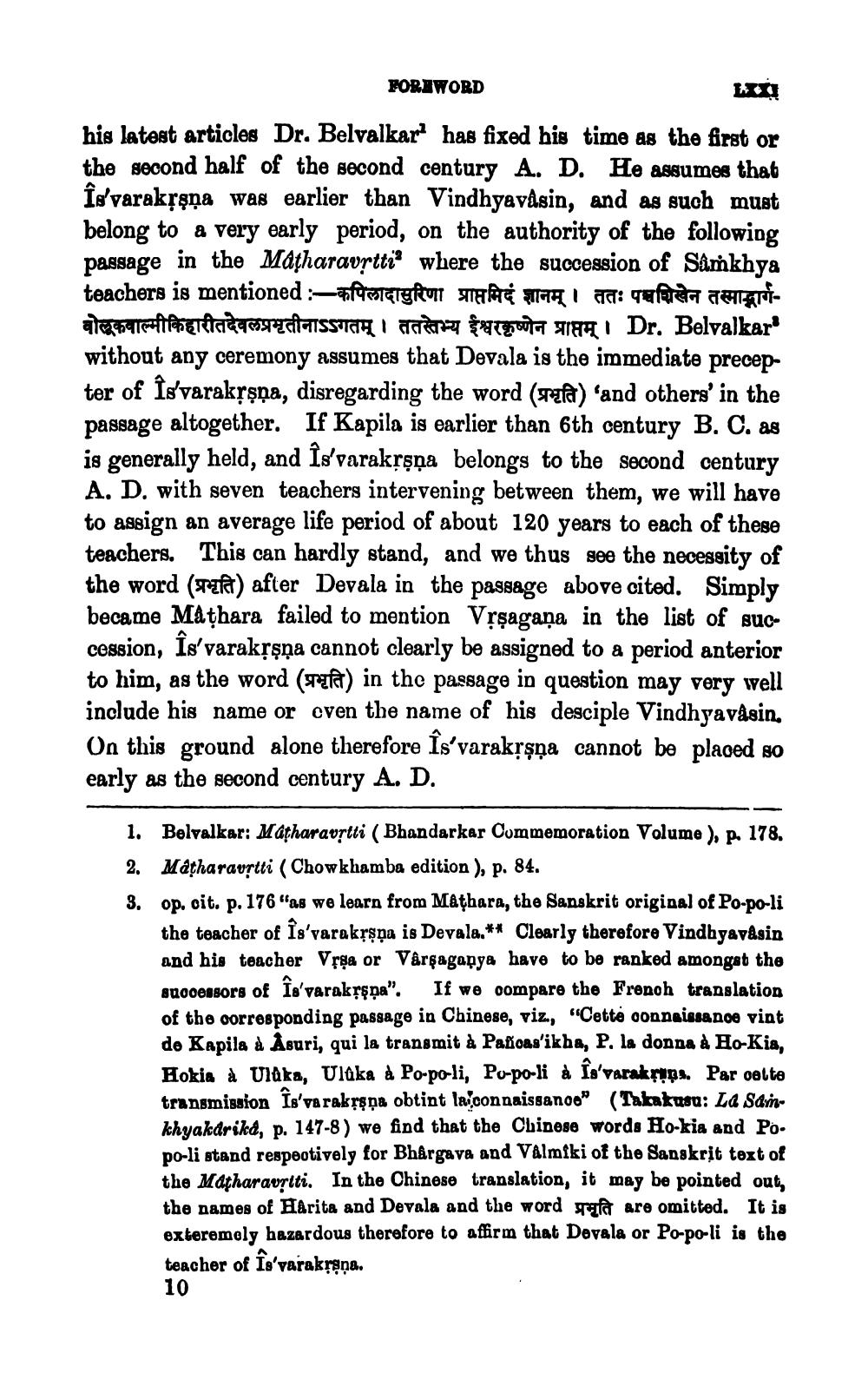________________
LXXI
his latest articles Dr. Belvalkar has fixed his time as the first or the second half of the second century A. D. He assumes that Îs'varakṛṣṇa was earlier than Vindhyavasin, and as such must belong to a very early period, on the authority of the following passage in the Matharavṛtti where the succession of Samkhya teachers is mentioned : – कपिलादासुरिणा प्राप्तमिदं ज्ञानम् । ततः पञ्चशिखेन तस्माद्भार्गबोलूकवाल्मीकिहारीतदेवलप्रभृतीनाऽऽगतम् । ततस्तभ्य ईश्वरकृष्णेन प्राप्तम् । Dr. Belvalkar' without any ceremony assumes that Devala is the immediate precepter of Îs'varakṛṣṇa, disregarding the word (f) and others' in the passage altogether. If Kapila is earlier than 6th century B. C. as is generally held, and Îs'varakṛṣṇa belongs to the second century A. D. with seven teachers intervening between them, we will have to assign an average life period of about 120 years to each of these teachers. This can hardly stand, and we thus see the necessity of the word (f) after Devala in the passage above cited. Simply became Mathara failed to mention Vṛṣagana in the list of succession, Is'varakṛṣṇa cannot clearly be assigned to a period anterior to him, as the word (f) in the passage in question may very well include his name or even the name of his desciple Vindhyavâsin. On this ground alone therefore Îs'varakṛṣṇa cannot be placed so early as the second century A. D.
FOREWORD
1. Belvalkar: Matharavṛtti (Bhandarkar Commemoration Volume), p. 178. 2. Matharavṛtti (Chowkhamba edition), p. 84.
3. op. cit. p. 176 "as we learn from Mathara, the Sanskrit original of Po-po-li the teacher of Îs'varakṛṣṇa is Devala.** Clearly therefore Vindhyavåsin and his teacher Vrea or Vârşaganya have to be ranked amongst the successors of Îs'varakṛṣṇa”. If we compare the French translation of the corresponding passage in Chinese, viz., "Cette connaissance vint de Kapila à Asuri, qui la transmit à Pañicas'ikha, P. la donna à Ho-Kia, Hokia à Ulaka, Uluka à Po-po-li, Po-po-li à Îs'varakruns. Par cette transmission Is'varakṛṣṇa obtint la connaissance" (Takakusu: La Sámkhyakarika, p. 147-8) we find that the Chinese words Ho-kia and Popo-li stand respectively for Bhargava and Valmiki of the Sanskrit text of the Matharavṛtti. In the Chinese translation, it may be pointed out, the names of Harita and Devala and the word f are omitted. It is exteremely hazardous therefore to affirm that Devala or Po-po-li is the teacher of Îs'varakṛṣṇa.
10




